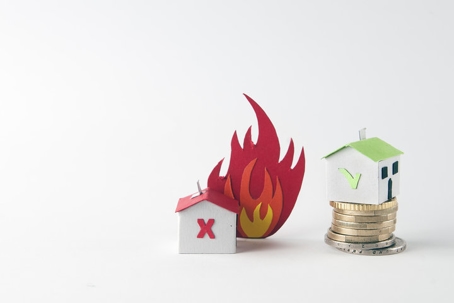Why Understanding Fire Insurance Claim Denials Matters
After a devastating fire, filing an insurance claim should help you recover faster. Yet many property owners are shocked when their fire damage claim is denied. Understanding **why claims get denied—and how to avoid it—** can save you from major financial headaches.
Let’s dive into the most common reasons—and simple steps you can take to protect yourself.
Why Would Insurance Deny a Fire Claim:
1. Insufficient Documentation
If you don’t provide enough evidence—photos, receipts, official reports—your insurer may reject the claim. Without clear proof, it’s your word against theirs.
2. Suspicion of Fraud
If your insurer suspects the fire was intentionally set, or if your claim details seem inconsistent, they may deny the payout.
3. Policy Exclusions
Standard policies often exclude certain causes, like electrical malfunctions, negligence, or wildfires. If your claim falls into one of these gaps, you could be denied.
4. Missed Deadlines
Insurance companies enforce strict timelines. Delaying your notification or paperwork can automatically void your claim rights.
5. Underinsurance Issues
If your property was insured for less than its true value, you might receive a reduced settlement—or face claim denial altogether.
6. Failure to Mitigate Further Damage
If you didn’t take reasonable steps to prevent additional damage (like boarding up windows or drying water after firefighting), insurers may refuse to pay.
7. Misrepresentation of Facts
Even accidental mistakes—such as misstating your home's condition—can lead to claim denials.
How to Avoid Fire Insurance Claim Denials
- Document Everything Immediately: Take clear, timestamped photos and videos after the fire.
- Notify Your Insurer Quickly: Report damage as soon as it's safe.
- Understand Your Policy: Know what is and isn’t covered.
- Work with Licensed Restoration Experts: Restoration companies can document fire damage properly and help strengthen your claim.
- Be Transparent: Always provide honest, accurate information to your insurance adjuster.
What to Do If Your Fire Insurance Claim Is Denied
- Request a Written Denial Explanation: Know exactly why your claim was rejected.
- Review Your Policy Carefully: Compare the denial reason with your policy terms.
- Provide Additional Documentation: Fill any evidence gaps if possible.
- Consult a Public Adjuster or Attorney: Professionals can help dispute unfair denials.
How a Restoration Company Can Help Your Fire Insurance Claim
Professional fire restoration companies do more than repairs—they can:
✅ Provide detailed damage reports accepted by insurers
✅ Help prevent further property damage (saving your claim)
✅ Work with your adjuster to speed up approvals
Choosing the right restoration partner can make the difference between a paid claim and a frustrating denial.
FAQs
What happens if my fire insurance claim is denied?
You can appeal the decision, provide more evidence, or hire a professional advocate like a public adjuster.
How can I make my fire insurance claim stronger?
Provide detailed evidence, meet deadlines, and hire trusted restoration professionals.
Final Thoughts
Dealing with fire damage is stressful enough—don’t let an insurance denial add to it.
By understanding the common pitfalls and preparing properly, you can protect your claim and get back to rebuilding faster.
🔥 Need help with fire restoration and insurance claims? Contact Good Life Restoration today—our experts are ready to support you every step of the way!

